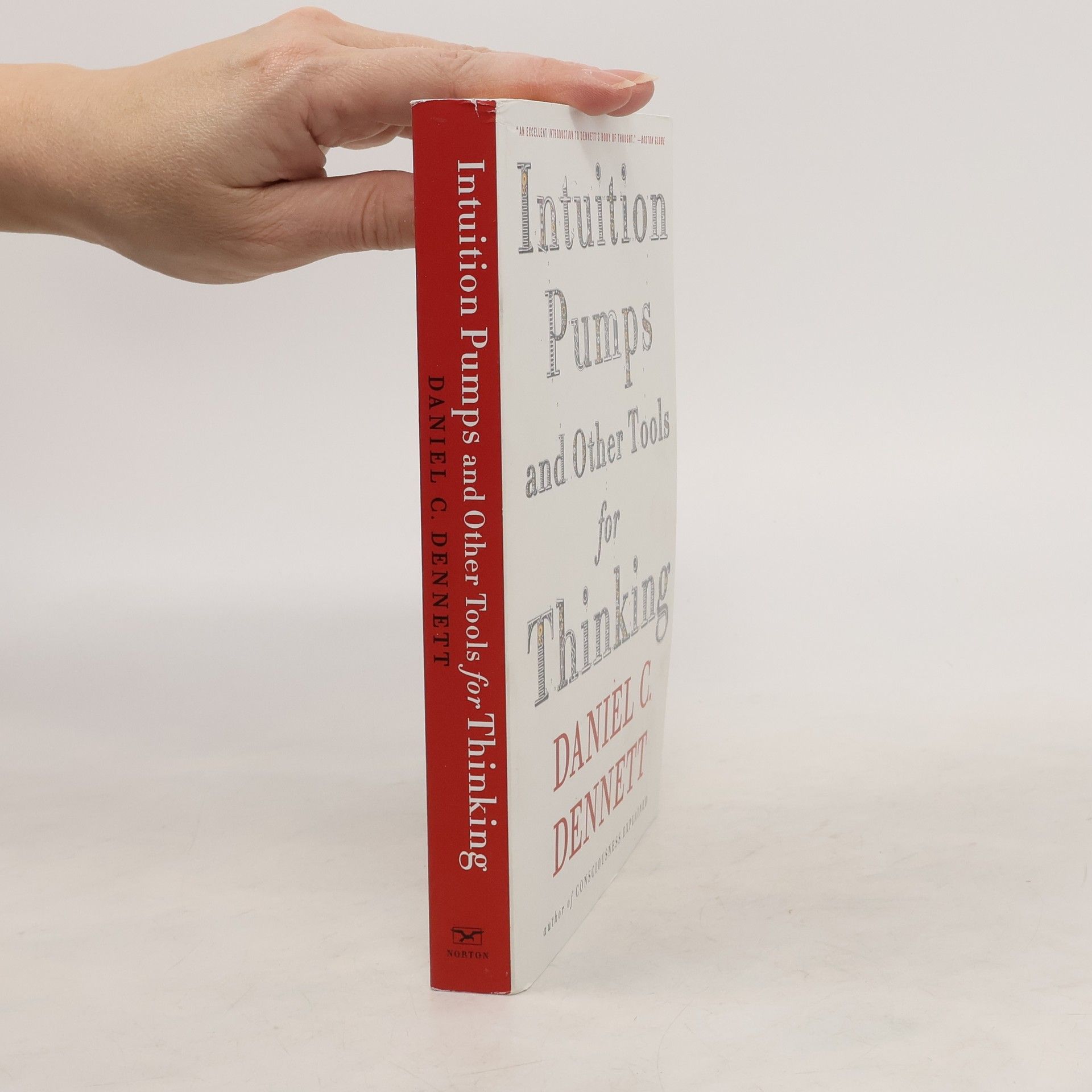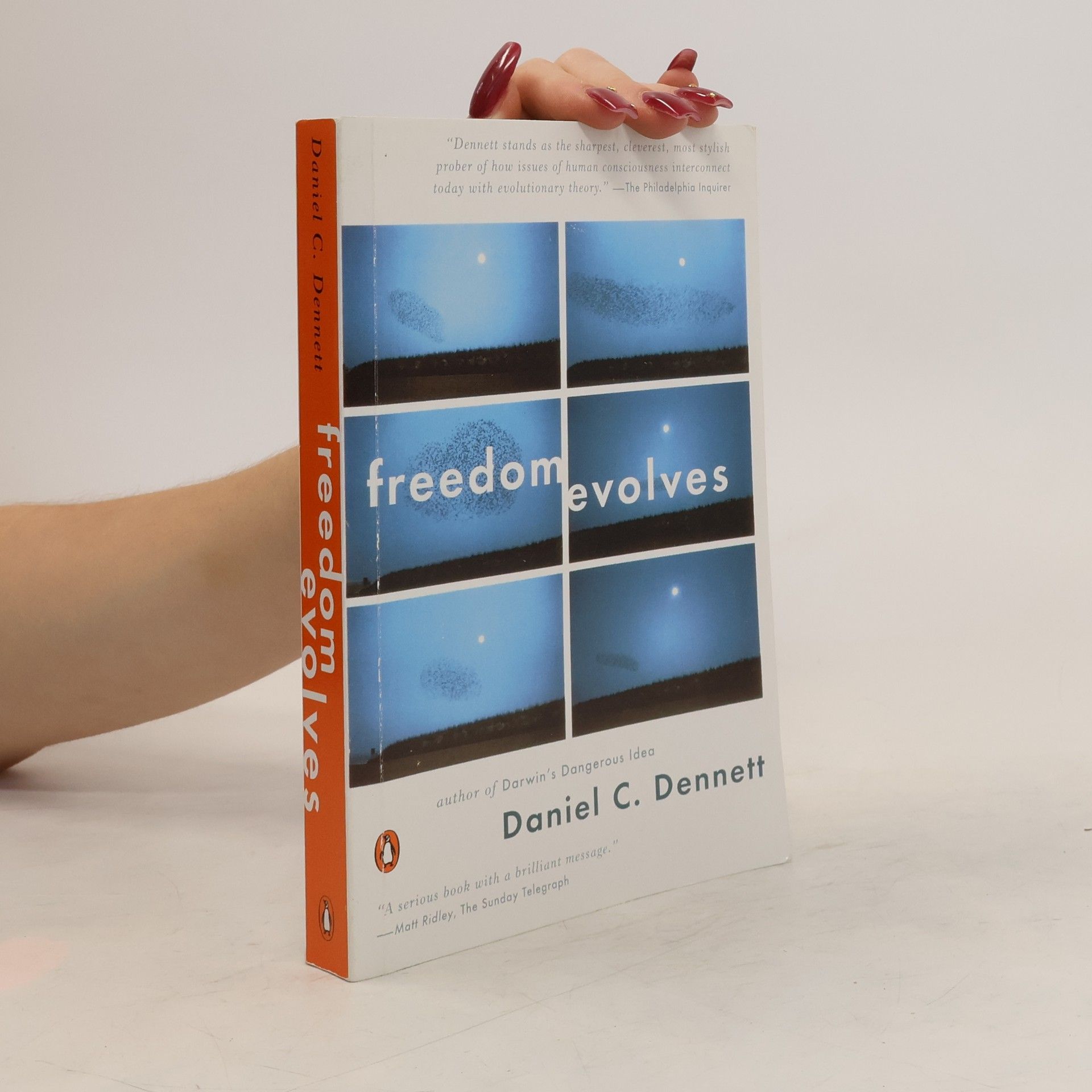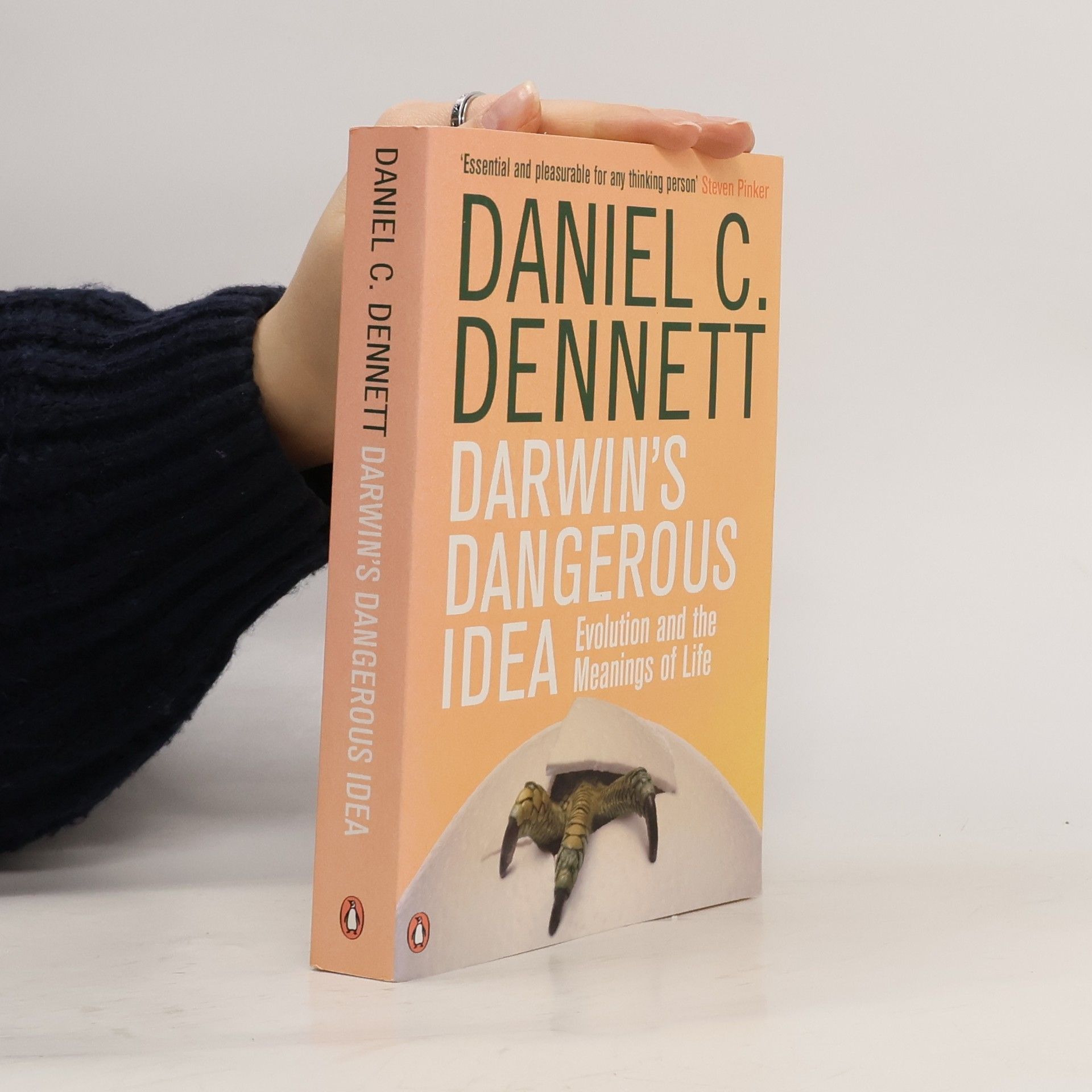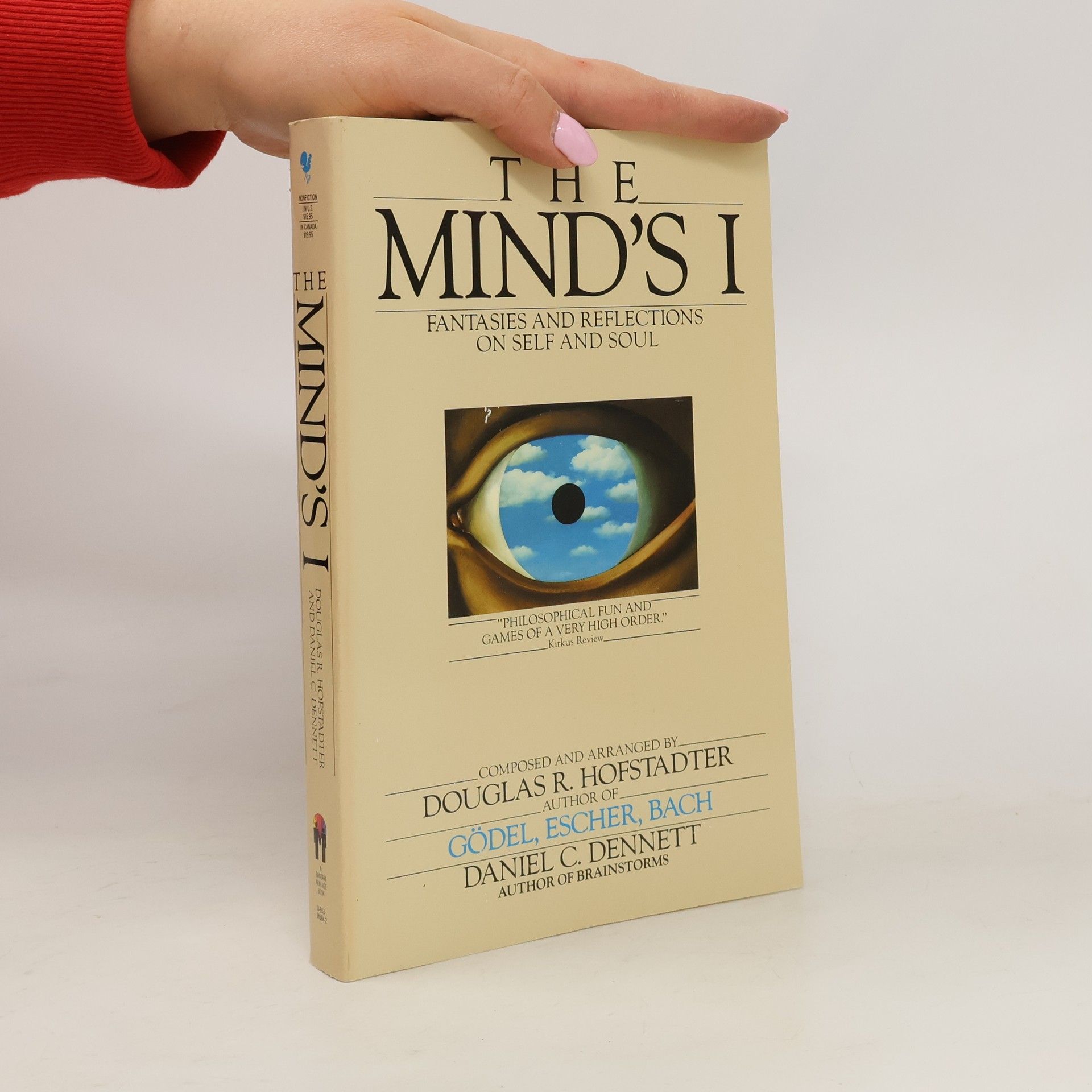Süße Träume
Die Erforschung des Bewußtseins und der Schlaf der Philosophie
Daniel Dennett is a prominent philosopher whose work delves into the philosophy of mind, science, and biology, particularly as they intersect with evolutionary biology and cognitive science. Known for his secular perspective, he contributes significantly to understanding consciousness and its place in the natural world. His writing is characterized by clarity and a drive to connect seemingly disparate fields of thought.







Die Erforschung des Bewußtseins und der Schlaf der Philosophie
Myślenie jest trudne, a niektóre problemy mogą sprawić, że głowa zacznie boleć od samego myślenia o nich. Książka ta to zbiór ulubionych narzędzi do myślenia, które posłużą do łagodnego prowadzenia przez skomplikowane koncepcje znaczenia, umysłu i wolnej woli. Rozpoczniemy od prostych, uniwersalnych narzędzi, które można zastosować w różnych zagadnieniach. Niektóre z nich są znane, inne zaś rzadko omawiane. Następnie zaprezentuję narzędzia specjalistyczne, zaprojektowane do rozmontowywania specyficznych idei, które mogą ograniczać myślenie ekspertów. Zajmiemy się również złymi narzędziami, które mogą wprowadzić w błąd, jeśli nie będziesz ostrożny. Niezależnie od tego, czy dotrzesz do proponowanego celu, ta podróż dostarczy Ci nowych sposobów myślenia o omawianych kwestiach oraz o samym myśleniu. Autor, Daniel C. Dennett, jest profesorem filozofii na Uniwersytecie Tufts, gdzie kieruje Center for Cognitive Studies. Jest uznawanym ekspertem w dziedzinie świadomości i wolnej woli, autorem wielu książek i artykułów naukowych.
'One of today's most readable, intellectually nimble and scientifically literate philosophers' Nature 'Who would have guessed that a philosopher's life could be so full of adventures?' Daniel C. Dennett, philosopher and cognitive scientist, has spent his career considering consciousness. I've Been Thinking traces the development of Dennett's own intellect and instructs us how we too can become good thinkers. Dennett's restless curiosity leads him from his childhood in Beirut to Harvard, and from Parisian jazz clubs to 'tillosophy' on his tractor in Maine. Along the way, he encounters and debates with a host of legendary thinkers, and reveals the breakthroughs and misjudgments that shaped his paradigm-shifting philosophies. Thinking, Dennett argues, is hard, and risky. In fact, all good philosophical thinking is inevitably accompanied by bafflement, frustration and self-doubt. It is only in getting it wrong that we, very occasionally, find a way to get it right. This memoir by one of the greatest philosophers of our time will speak to anyone who seeks a life of the mind with adventure and creativity.
Twoje stanowisko, Dan, jest jak węgorz - za każdym razem, kiedy je uchwycę, a przynajmniej tak mi się wydaje, wymyka mi się z rąk, skarży się Gregg D. Caruso. Tak właśnie się dzieje, kiedy filozofowie usiłują sklasyfikować wszystkie izmy, odparowuje Daniel C. Dennett. Dwóch znakomitych filozofów ściera się - życzliwie, ale bez merytorycznej taryfy ulgowej - w epistolarnej dyskusji o tym, czy jesteśmy kukiełkami na linkach przypadku, czy mamy życie pod niejaką choćby kontrolą. Sceptycznie spoglądający na ideę wolnej woli Caruso spotyka się z reprezentującym pogląd przeciwny Dennettem. Ten pierwszy, analityk z temperamentu, szuka równo ciętych definicji. Ten drugi, głową i sercem darwinista, wskazuje, że analogowy świat nie operuje w trybie binarnym. Próbując rozstrzygnąć problem wolnej woli i związanej z nią odpowiedzialności moralnej, Dennett i Caruso ponoszą oczywiste fiasko. Nie zdoławszy przekonać adwersarza do swoich poglądów przegrywają, ale ze wspaniałym efektem. Poglądy którego z nich mają solidniejszą konstrukcję? Decyzja należy do wolnej woli Czytelnika.
Wybitny filozof Daniel C. Dennett, poszukując odpowiedzi na pytania o naturę naszego umysłu, łączy idee z zakresu filozofii, sztucznej inteligencji i neurobiologii. Starając się zrozumieć świadomość, stawia szereg intrygujących, a czasem wręcz niepokojących pytań. Czy możemy wiedzieć, co naprawdę dzieje się w umyśle innego człowieka? Czy to możliwe, że jesteś jedynym umysłem we Wszechświecie, a wszystko poza tobą jest jedynie bezwiednym mechanizmem? Autor dowodzi, jak bardzo skomplikowaną materią jest umysł człowieka – utkany z wielu różnych wątków i łączący wiele różnych wzorów. Niektóre z nich są tak stare jak samo życie, inne tak nowe jak dzisiejsza technologia. Umysł człowieka jest pod wieloma względami dokładnie taki jak umysły zwierząt, pod innymi całkowicie się od nich różni. Dzięki tej książce dostrzeżemy ścieżki, jakimi można podążyć, i pułapki, których należy unikać w naszych nieustających eksploracjach natury umysłów.
Jeden z najwybitniejszych współczesnych filozofów przedstawia nową koncepcję początków świadomego umysłu. Zastanawia się, dlaczego istnieją umysły i jak mogą one zadawać pytania oraz na nie odpowiadać. Zrozumienie naszych świadomych umysłów prowadzi przez skomplikowaną ścieżkę nauki i filozofii, opartą na założeniu, że ludzie są obiektami fizycznymi, podlegającymi prawom fizyki. Ta droga pełna jest trudności empirycznych i konceptualnych, a wielu ekspertów prowadzi ożywione dyskusje na ten temat. Autor, przez ponad pięćdziesiąt lat, przeszukiwał te zawirowania, znajdując ścieżkę do satysfakcjonującej koncepcji, która ukazuje, jak magia umysłu urzeczywistnia się bez magii. Choć nie jest to jedyna droga, autor wskazuje, że jest to obecnie najlepsza i najbardziej obiecująca. Książka jest niezwykle przyjemną i wciągającą lekturą, łączącą pięćdziesięcioletnie refleksje Dennetta. Zyskał on reputację jednego z najłatwiejszych w lekturze i intelektualnie zręcznych filozofów. Jego wiedza z zakresu neurologii, językoznawstwa, sztucznej inteligencji, informatyki i psychologii redefiniuje rolę filozofa. Autor odwiedzi Polskę z wykładami w dniach 21-24 października.
The concept of free will is profoundly important to our self-understanding, our interpersonal relationships, and our moral and legal practices. If it turns out that no one is ever free and morally responsible, what would that mean for society, morality, meaning, and the law? Just Deserts brings together two philosophers – Daniel C. Dennett and Gregg D. Caruso – to debate their respective views on free will, moral responsibility, and legal punishment. In three extended conversations, Dennett and Caruso present their arguments for and against the existence of free will and debate their implications. Dennett argues that the kind of free will required for moral responsibility is compatible with determinism – for him, self-control is key; we are not responsible for becoming responsible, but are responsible for staying responsible, for keeping would-be puppeteers at bay. Caruso takes the opposite view, arguing that who we are and what we do is ultimately the result of factors beyond our control, and because of this we are never morally responsible for our actions in the sense that would make us truly deserving of blame and praise, punishment and reward. Just Deserts introduces the concepts central to the debate about free will and moral responsibility by way of an entertaining, rigorous, and sometimes heated philosophical dialogue between two leading thinkers.
Myślenie jest trudne, a niektóre problemy mogą sprawić, że poczujesz ból głowy już na samą myśl o nich. Ta książka to zbiór ulubionych narzędzi myślowych, które nie tylko opisuję, ale także wykorzystuję, aby delikatnie poprowadzić Twój umysł przez skomplikowane zagadnienia dotyczące znaczenia, umysłu i wolnej woli. Rozpoczniemy od prostych, uniwersalnych narzędzi, które można zastosować do różnych problemów. Niektóre z nich są znane, inne zaś rzadziej omawiane. Następnie zaprezentuję narzędzia specjalistyczne, stworzone do rozwiązywania konkretnych, uwodzicielskich idei, które mogą ograniczać myślenie ekspertów. Zajmiemy się również demontażem złych narzędzi myślowych, które mogą wprowadzić w błąd, jeśli nie będziesz ostrożny. Bez względu na to, czy dotrzesz do proponowanego celu, ta podróż dostarczy Ci nowych sposobów myślenia o omawianych zagadnieniach oraz o samym myśleniu. (Daniel C. Dennett) Daniel C. Dennett jest profesorem filozofii na Uniwersytecie Tufts i kieruje Center for Cognitive Studies. Jest autorem wielu książek i artykułów naukowych, uznawanym ekspertem w dziedzinie świadomości i wolnej woli.
Was ist der menschliche Geist und wie ist er überhaupt möglich? Daniel C. Dennett ist der weltweit wohl bedeutendste Fürsprecher von Materialismus, Aufklärung und Wissenschaft. Seit über fünfzig Jahren wirbt und streitet er für seine Ansichten. Mit diesem Buch wagt er noch einmal einen Rundumschlag, eine Meistererzählung von den Ursprüngen des Lebens über die Geistesgrößen der Menschheit wie Johann Sebastian Bach, Marie Curie oder Pablo Picasso bis hin zur Künstlichen Intelligenz. Dennett zeigt, wie eine vollkommen geistlose genetische und kulturelle Evolution es geschafft hat, zunächst die Einzeller, dann Pflanzen und Tiere sowie schließlich den Geist, die Kultur und das Bewusstsein hervorzubringen. Und er schießt dabei gewohnt scharf gegen Kreationisten, Antidarwinisten und alle anderen, denen ihr dogmatischer Schlummer wichtiger ist als die Wahrheit.
One of America's foremost philosophers offers a major new account of the origins of the conscious mind.